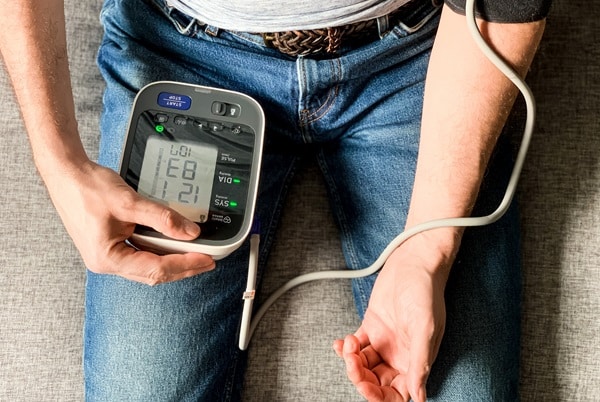Vitamin D, often referred to as the “sunshine vitamin,” is crucial for maintaining overall health, particularly for bone and immune system function. It is synthesized in the skin through exposure to sunlight, but it can also be obtained from certain foods and supplements. Despite its importance, vitamin D deficiency is a common global health issue, leading to various physical and mental health problems. This article explores the signs and symptoms of vitamin D deficiency, shedding light on how this overlooked nutrient plays a vital role in our well-being.
Contents
Fatigue and Tiredness

Vitamin D deficiency is frequently associated with a general sense of fatigue and tiredness that can affect daily activities. Individuals with insufficient vitamin D levels often report a persistent feeling of exhaustion that is not relieved by sleep. Research indicates a significant correlation between low vitamin D concentrations and higher levels of daytime sleepiness and chronic fatigue syndrome. This relationship suggests that adequate vitamin D intake is essential for energy production and maintaining vitality throughout the day.
Bone Pain and Weakness

Vitamin D plays a pivotal role in calcium absorption, crucial for maintaining strong and healthy bones. A deficiency in this vitamin can lead to bone pain, tenderness, and weakness, often mistaken for other health issues like arthritis. Adults with severe vitamin D deficiency can experience osteomalacia, a condition characterized by softening of the bones, leading to bending and deformation. The prevention of such conditions underscores the importance of regular vitamin D monitoring and supplementation if necessary.
Mood Changes and Depression

The impact of vitamin D on mood and mental health is profound, with deficiencies often linked to changes in mood and increased risk of depression. Several studies have found that low levels of vitamin D are associated with depression, particularly in older adults. Vitamin D receptors in the brain play a key role in mood regulation and brain function, suggesting that sufficient levels of this vitamin are crucial for psychological health. Therefore, addressing vitamin D deficiency could be a vital component of mental health management and therapy.
Impaired Wound Healing

Vitamin D is essential for the body’s wound healing process and plays a significant role in fighting infections and reducing inflammation. Deficiency in vitamin D can result in slower wound healing and recovery times, as the nutrient is crucial for the creation and function of cells responsible for repair. Studies have shown that higher levels of vitamin D can lead to improved wound healing due to its effect on cell proliferation and differentiation. Consequently, adequate vitamin D levels are critical in post-surgical recovery and the healing of cuts, bruises, and other skin injuries.
Impaired wound healing due to vitamin D deficiency can also increase the risk of infection, as the body’s natural barrier and immune response are compromised. People with chronic wounds, such as ulcers, may find them more difficult to heal if they are deficient in vitamin D. This situation underscores the importance of maintaining sufficient vitamin D levels to support the body’s healing processes. Health professionals often recommend vitamin D supplementation as part of the treatment plan for individuals with slow-healing wounds to accelerate recovery and prevent complications.
Muscle Pain and Weakness

Muscle pain and weakness are common symptoms of vitamin D deficiency, affecting individuals’ mobility and quality of life. Vitamin D is vital for muscle function, and its deficiency can lead to discomfort, pain, and a general feeling of weakness, particularly in the lower limbs. This can impact daily activities, making tasks that require muscle strength and coordination, such as climbing stairs, increasingly difficult. Research indicates that vitamin D supplements can significantly reduce muscle pain and improve muscle strength in individuals with low levels of this nutrient.
Moreover, chronic muscle pain without a clear cause should prompt an evaluation of vitamin D levels, as supplementation may alleviate these symptoms. The exact mechanism through which vitamin D influences muscle function is still under study, but it is known to play a role in calcium metabolism and muscle contraction. Therefore, maintaining adequate vitamin D levels is crucial not only for bone health but also for the proper functioning of muscles, enhancing physical performance, and reducing the risk of falls and injuries.
Hair Loss

Hair loss can be a distressing condition, and while many factors contribute to it, vitamin D deficiency is increasingly recognized as a potential cause. Vitamin D plays a crucial role in the cycle of hair growth and regeneration, and low levels have been linked to alopecia, a medical condition characterized by significant hair loss. Research suggests that vitamin D helps in the creation of new hair follicles, areas where hair growth begins, and deficiencies can lead to hair thinning and loss. Individuals experiencing unexplained hair loss should consider having their vitamin D levels checked as part of their diagnostic process.
The relationship between vitamin D and hair health extends beyond just hair loss; it affects the overall health of the hair follicle. Adequate levels of vitamin D can promote hair growth and regeneration, leading to healthier and stronger hair. Treatment for vitamin D deficiency-related hair loss typically involves increasing vitamin D intake through diet, supplements, and exposure to sunlight, potentially reversing the hair loss if deficiency was the cause. This approach highlights the importance of vitamin D in maintaining not only bone and immune health but also in supporting healthy hair growth.
Increased Risk of Infections

Vitamin D is pivotal in modulating the body’s immune system, enhancing its ability to fend off infections. Deficiency in vitamin D has been linked to an increased susceptibility to infections, especially of the respiratory tract, such as colds, influenza, and bronchitis. The vitamin influences immune cells, like macrophages and T cells, which play critical roles in defending the body against pathogens. Adequate vitamin D levels can bolster the immune response, reducing the risk of developing infectious diseases and facilitating quicker recovery when sick.
Studies have shown that individuals with lower vitamin D levels are more prone to experiencing frequent infections, highlighting the vitamin’s role in immune health. In addition to its direct effects on immune cells, vitamin D is known to influence the expression of genes that control the body’s response to pathogens. Ensuring sufficient vitamin D intake through sun exposure, diet, and supplementation can be a key strategy in enhancing immune function and protecting against various infectious agents, underscoring the broader health implications of this vital nutrient.
Cardiovascular Issues

Vitamin D deficiency has been associated with an increased risk of cardiovascular diseases, including hypertension, heart disease, and stroke. The nutrient is essential for heart health, with research indicating that it helps regulate blood pressure and prevent artery damage. Low levels of vitamin D can lead to endothelial dysfunction, a condition that affects the inner lining of blood vessels and can increase the risk of heart disease and stroke. Adequate vitamin D is crucial for maintaining cardiovascular health, reducing inflammation, and preventing the buildup of plaque in the arteries.
Furthermore, vitamin D’s role in calcium metabolism also extends to its impact on cardiovascular health, as imbalances in calcium can lead to vascular calcification and other heart problems. Studies have found a correlation between low vitamin D levels and an increased risk of heart attacks, congestive heart failure, and peripheral arterial disease. Therefore, monitoring and managing vitamin D levels can be a significant factor in cardiovascular disease prevention and overall heart health, emphasizing the importance of this nutrient in maintaining a healthy circulatory system.
Vitamin D Deficiency: A Call to Action
Recognizing the signs of vitamin D deficiency is crucial for maintaining overall health and preventing a range of chronic conditions. From fatigue and bone pain to increased infection risk and cardiovascular issues, the impact of insufficient vitamin D levels is extensive and multifaceted. Ensuring adequate intake through sunlight exposure, diet, and supplements is essential for supporting bone health, immune function, and cardiovascular health. This article highlights the importance of being vigilant about our vitamin D levels to safeguard our health and enhance our quality of life.


